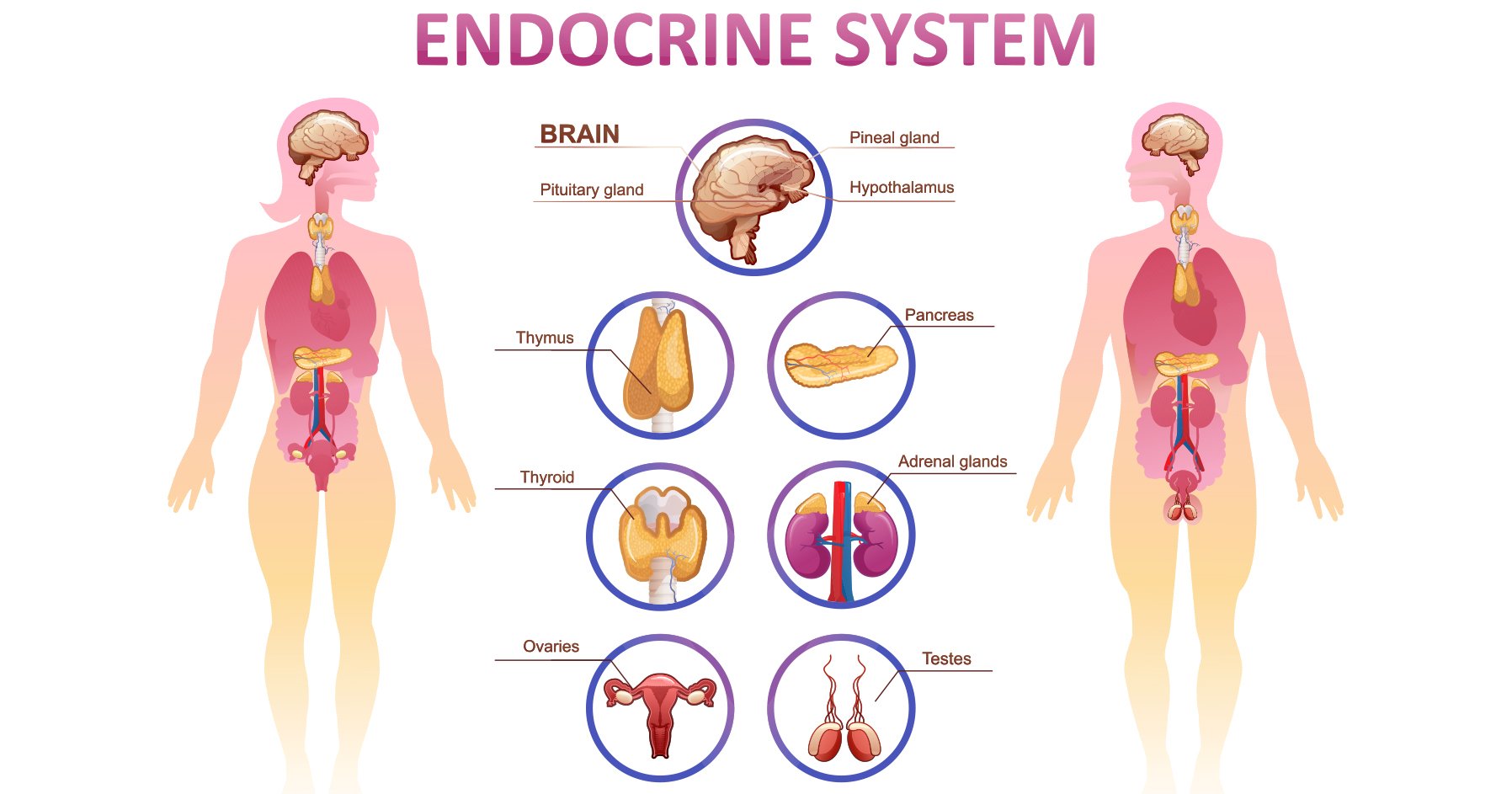
The human body is a marvel of complexity, with its myriad of systems and organs working in harmony to maintain balance and ensure optimal functioning. One of these essential systems is the endocrine system, a network of glands and hormones that serve as the body’s chemical messengers. The primary function of the endocrine system is to regulate and coordinate various physiological processes, ensuring homeostasis and overall well-being.
Understanding the Endocrine System
The endocrine system consists of several glands located throughout the body. These glands release hormones into the bloodstream, which then travel to target cells or tissues to exert their effects. Unlike the nervous system, which communicates through electrical signals, the endocrine system communicates through chemical signals in the form of hormones.
Key components of the endocrine system include:
1. Glands: Endocrine glands, such as the pituitary gland, thyroid gland, adrenal glands, and pancreas, are scattered throughout the body. Each gland produces specific hormones that play crucial roles in regulating various bodily functions.
2. Hormones: Hormones are chemical messengers secreted by endocrine glands. These molecules travel through the bloodstream and bind to receptors on target cells or tissues, eliciting specific responses. Hormones are highly potent, even in small quantities, and can have profound effects on the body.
3. Target Organs and Tissues: Each hormone has a specific target, where it exerts its influence. Target organs or tissues have receptors for particular hormones, allowing them to respond to hormonal signals.
Primary Functions of the Endocrine System
The endocrine system serves several vital functions, with the primary goal of maintaining homeostasis, which is the body’s ability to regulate its internal environment and keep it stable despite external changes. Here are the primary functions of the endocrine system:
1. Regulation of Metabolism
The endocrine system plays a pivotal role in regulating metabolism. Hormones produced by the thyroid gland, such as thyroxine (T4) and triiodothyronine (T3), control the rate at which cells convert nutrients into energy. These hormones influence the body’s basal metabolic rate (BMR) and help regulate body temperature.
2. Growth and Development
Hormones, such as growth hormone (GH) produced by the pituitary gland, are instrumental in promoting growth and development, particularly during childhood and adolescence. They stimulate the growth of bones, muscles, and tissues.
3. Regulation of Blood Sugar
The pancreas, an essential gland of the endocrine system, produces insulin and glucagon. These hormones work together to regulate blood sugar (glucose) levels. Insulin lowers blood sugar by facilitating the uptake of glucose into cells, while glucagon raises blood sugar by prompting the release of stored glucose from the liver.
4. Response to Stress
The adrenal glands produce hormones like cortisol and adrenaline (epinephrine) that help the body respond to stress. These hormones prepare the body for the “fight or flight” response, increasing heart rate, boosting energy levels, and sharpening focus.
5. Regulation of Calcium and Phosphorus
The parathyroid glands secrete parathyroid hormone (PTH), which regulates calcium and phosphorus levels in the blood. PTH stimulates the release of calcium from bones when blood levels are low and enhances calcium absorption in the intestines.
6. Reproductive Function
The endocrine system plays a pivotal role in regulating reproductive function. Hormones like estrogen and progesterone (produced by the ovaries) and testosterone (produced by the testes) control secondary sexual characteristics, the menstrual cycle, and sperm production.
7. Immune System Regulation
Emerging research suggests that the endocrine system may also have an immunomodulatory role. Hormones, such as cortisol, can influence the immune response. An imbalance in the endocrine system can impact immune function and make the body more susceptible to illness.
Disorders of the Endocrine System
When the endocrine system malfunctions, it can lead to a wide range of health issues. Common endocrine disorders include diabetes, thyroid disorders (hypothyroidism and hyperthyroidism), adrenal insufficiency, and hormonal imbalances. These conditions can have far-reaching effects on various bodily functions and may require medical treatment to restore balance.
Conclusion
The primary function of the endocrine system is to regulate and coordinate essential physiological processes, ensuring that the body maintains homeostasis and functions optimally. This intricate network of glands and hormones plays a critical role in regulating metabolism, growth, blood sugar levels, stress responses, reproductive function, and more. Understanding the significance of the endocrine system highlights its importance in maintaining overall health and underscores the need for regular medical evaluation and treatment when endocrine disorders arise.




